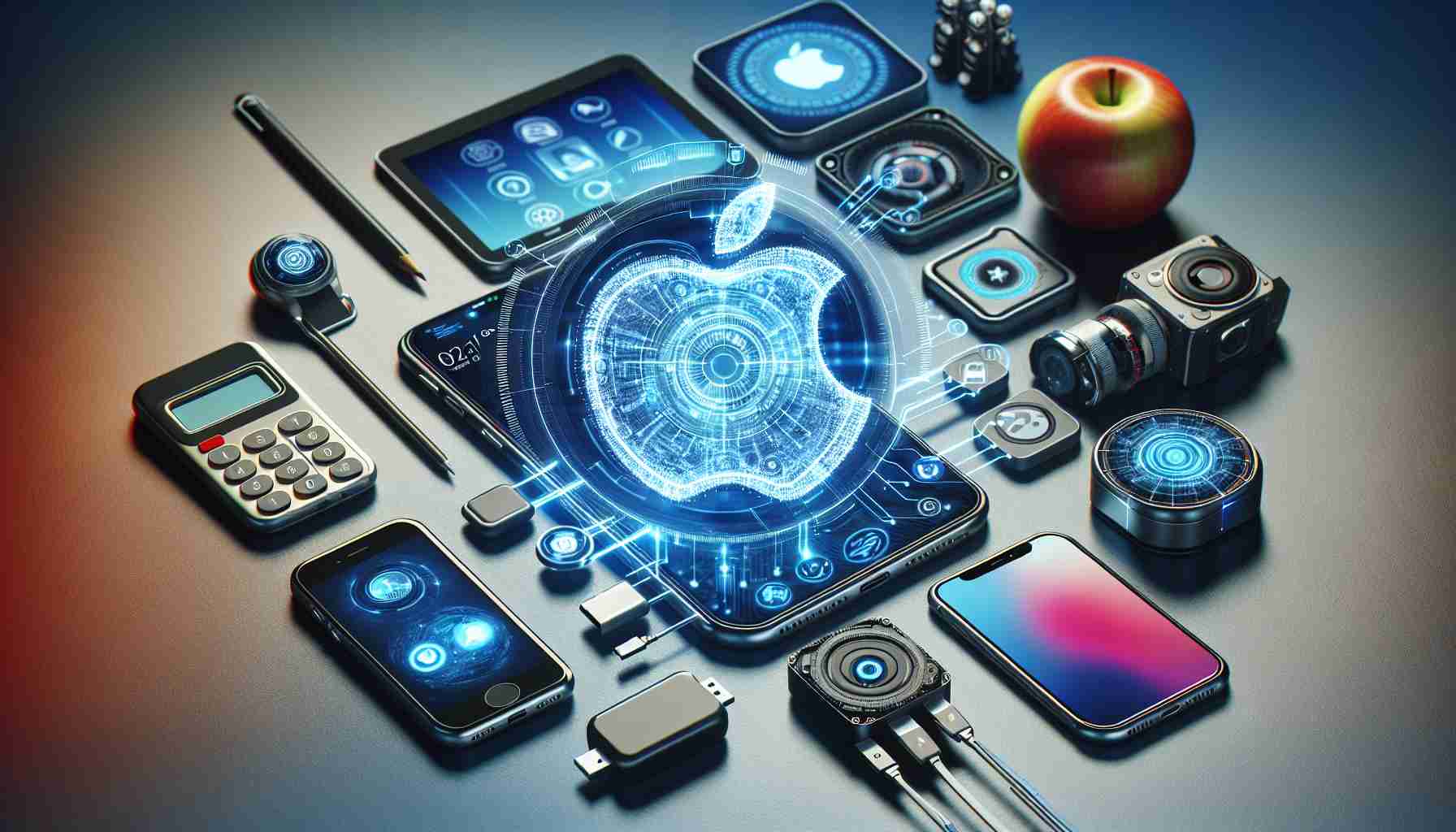Cupertino, California – Apple unveiled plans to integrate advanced artificial intelligence (AI) into the iPhone, iPad, and Mac devices, enhancing the user experience with the sparking of new features. The forthcoming software updates, which will be available later this year at no extra cost, are collectively named “Apple Intelligence”.
As AI becomes the epicenter of technological progression, Apple finds itself in a transformative phase, aiming to make an impact in a field where tech giants like Microsoft and Google are presently dominant. To bolster this effort, Apple is harnessing the capabilities of ChatGPT by OpenAI to enhance Siri’s functionality, rendering the voice assistant more adept and beneficial for its users.
The initiative to upgrade Siri begins with integrating a pathway to ChatGPT that will reflect as a complimentary addition for all iPhone users, with subsequent extensions to other Apple devices upon the newest operating system releases. Subscribers of ChatGPT are anticipated to enjoy a seamless account sync process on their iPhones and also gain access to enhanced features beyond what regular users will receive.
At the company’s packed World Wide Developers Conference, Apple CEO Tim Cook spotlighted this stride towards “personal intelligence”, highlighting the collaboration as a progressive leap for the brand. The spectacle featured OpenAI’s CEO, Sam Altman, who emphasized the joint endeavor’s commitment to maximizing the innovation AI can deliver.
In an extensive revamp for Siri, Apple aims to augment its virtual assistant’s capabilities, allowing it to perform an array of additional tasks and improving its interface with features like display screen edge lighting signaling Siri’s activation. However, the most advanced of these AI-driven features will be restricted to more recent Apple devices due to the need for top-tier processors.
The upcoming software enhancements are designed to amplify productivity and creativity for Apple’s extensive user base, as the company seeks to empower rather than supplant its customers. For instance, users can anticipate the invention of “Genmojis”—dynamic emojis crafted on-the-spot to match the user’s expressive intent.
The prospect of heightened AI integration into Apple’s ecosystem has sparked a mix of investor responses yet remains a strategic move praised by industry analysts like Dan Ives of Wedbush Securities, who sees this as an evolutionary moment for the tech trailblazer.
Moreover, Apple confirms it will incorporate Rich Communications Service (RCS) into iMessage to elevate the interaction between iPhones and Android-powered devices. This enhancement will take part in the forthcoming iPhone software update, poised to refine message quality and security without altering the well-known blue and green text bubbles, which denote the message source.
Further messaging innovations include the option to draft and schedule texts in advance with AI assistance. These adjustments, together with AI advancements, signify Apple’s enduring aptitude to redefine the technological landscape.
Important Questions and Answers:
Q: What is “Apple Intelligence”?
A: “Apple Intelligence” refers to the latest software updates by Apple that aim to integrate advanced artificial intelligence into their devices such as iPhone, iPad, and Mac. These updates will enhance user experience with new features and improved capabilities of Siri, among other enhancements.
Q: How is Apple planning to integrate AI into Siri?
A: Apple plans to enhance Siri by integrating it with the capabilities of ChatGPT, a conversational AI created by OpenAI. This integration will make Siri more adept and beneficial for users, with improved functionality and additional tasks it can perform.
Q: Will older Apple devices receive these AI-driven features?
A: The most advanced AI-driven features will be restricted to more recent Apple devices that are equipped with top-tier processors. Older devices may not support these new capabilities due to hardware limitations.
Key Challenges or Controversies:
– Keeping User Privacy: As AI features become more advanced, they tend to require more data, which might raise concerns over user privacy. Apple needs to balance AI integration with its reputed stance on user privacy.
– Competition with Tech Giants: Competing in the AI space with established players like Google and Microsoft, who have significant expertise in AI, is challenging and puts pressure on Apple to match or surpass their offerings.
– Hardware Limitations: The requirement for more recent, higher-spec hardware to support advanced AI features may disappoint users of older Apple devices.
Advantages:
– Improved User Experience: AI integration can lead to a more personalized and efficient user experience.
– Increased Productivity: Enhanced AI features, such as the ability to draft and schedule texts, can help users be more productive.
– Product Innovation: Features like “Genmojis” represent innovative ways to utilize AI, keeping Apple at the forefront of technology trends.
Disadvantages:
– Device Exclusivity: Restricting advanced features to newer devices may force users to purchase newer models, which can be a financial burden.
– Software Complexity: As AI features get incorporated, the complexity of the software increases, which could potentially lead to issues such as bugs or more challenging user interfaces.
For more information on Apple’s initiatives and products, please visit Apple.
